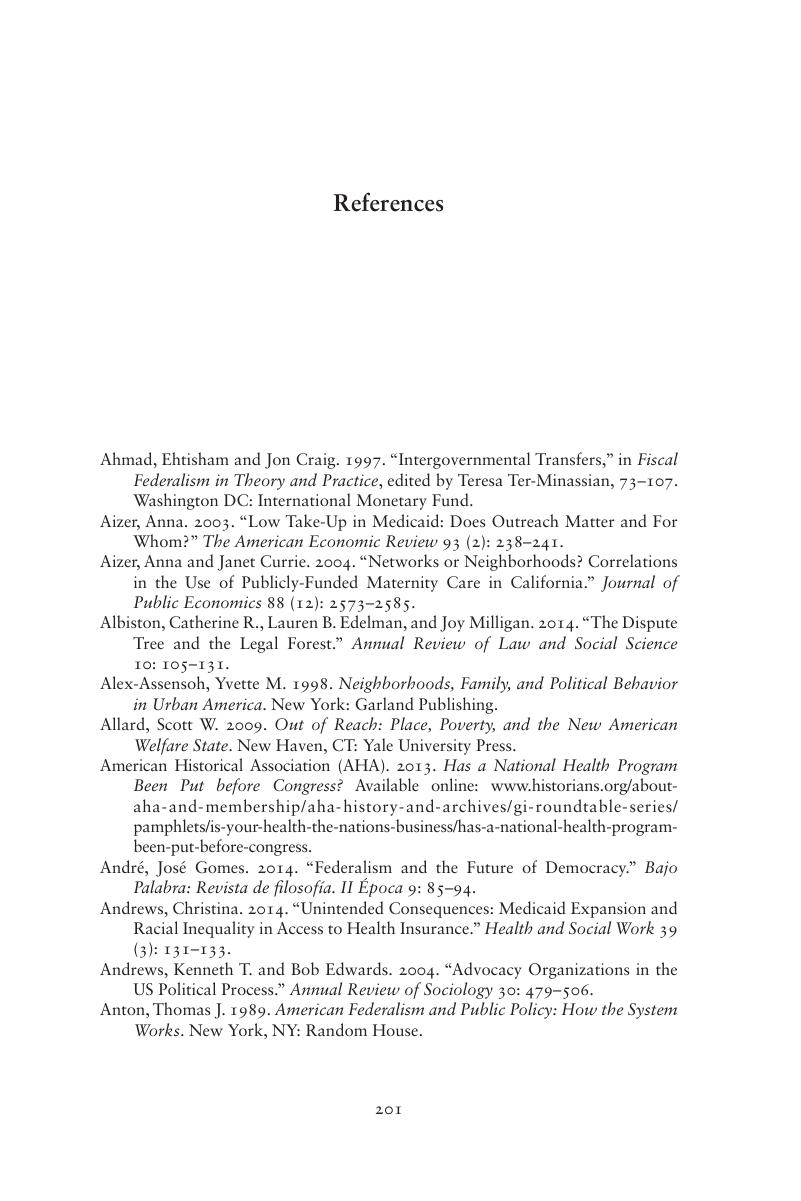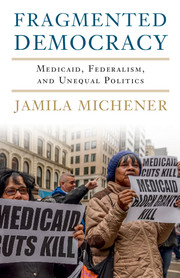Book contents
- Fragmented Democracy
- Fragmented Democracy
- Copyright page
- Dedication
- Contents
- Acknowledgments
- 1 Medicaid, Political Life, and Fragmented Democracy
- 2 Democratic Citizenship and Contextualized Policy Feedback
- 3 Federalism, Health Care, and Inequity
- 4 State Policy and Political Mis(Education)
- 5 Particularistic Resistance in County Contexts
- 6 People, Places, and Social Policy in the City
- 7 Policy Advocacy across a Fragmented Polity
- 8 Federalism and Political Inequality
- Book part
- Notes
- References
- Index
- References
References
Published online by Cambridge University Press: 16 March 2018
- Fragmented Democracy
- Fragmented Democracy
- Copyright page
- Dedication
- Contents
- Acknowledgments
- 1 Medicaid, Political Life, and Fragmented Democracy
- 2 Democratic Citizenship and Contextualized Policy Feedback
- 3 Federalism, Health Care, and Inequity
- 4 State Policy and Political Mis(Education)
- 5 Particularistic Resistance in County Contexts
- 6 People, Places, and Social Policy in the City
- 7 Policy Advocacy across a Fragmented Polity
- 8 Federalism and Political Inequality
- Book part
- Notes
- References
- Index
- References
Summary

- Type
- Chapter
- Information
- Fragmented DemocracyMedicaid, Federalism, and Unequal Politics, pp. 201 - 220Publisher: Cambridge University PressPrint publication year: 2018



